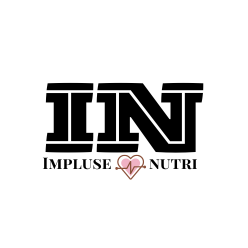Eating for your fitness journey involves making informed choices that support your goals, whether it’s weight loss, muscle gain, improved endurance, or overall health. Here are some general guidelines on what to eat and what to avoid during your fitness journey:
**What to Eat:**
1. **Lean Protein:**
– Include lean protein sources like chicken, turkey, fish, lean beef, tofu, tempeh, beans, lentils, and Greek yogurt.
– Protein is essential for muscle repair and growth.
2. **Complex Carbohydrates:**
– Choose complex carbohydrates like whole grains (oats, quinoa, brown rice), sweet potatoes, legumes, and starchy vegetables.
– Carbohydrates provide energy for your workouts and daily activities.
3. **Healthy Fats:**
– Incorporate sources of healthy fats, such as avocados, nuts, seeds, olive oil, and fatty fish (e.g., salmon, mackerel).
– Fats are necessary for overall health and hormone production.
4. **Fruits and Vegetables:**
– Consume a variety of colorful fruits and vegetables to ensure a wide range of vitamins, minerals, and antioxidants.
– These foods support overall health and recovery.
5. **Dairy or Dairy Alternatives:**
– If you tolerate dairy, choose low-fat or non-fat options like Greek yogurt, skim milk, or low-fat cheese.
– For dairy alternatives, opt for unsweetened almond, soy, or oat milk.
6. **Hydration:**
– Drink plenty of water throughout the day to stay hydrated. Proper hydration is essential for optimal performance and recovery.
7. **Pre-Workout Nutrition:**
– Have a small meal or snack containing carbohydrates and a moderate amount of protein 1-2 hours before your workout for sustained energy.
8. **Post-Workout Nutrition:**
– After exercise, consume a meal or snack with both protein and carbohydrates within 1-2 hours to support muscle recovery and glycogen replenishment.
**What to Avoid or Limit:**
1. **Processed Foods:**
– Limit highly processed foods like sugary snacks, fast food, and processed meats, as they often contain excessive added sugars, unhealthy fats, and artificial additives.
2. **Sugary Beverages:**
– Reduce or eliminate sugary drinks like soda, fruit juices, and energy drinks, as they can contribute to empty calories and sugar spikes.
3. **Trans Fats and Saturated Fats:**
– Minimize trans fats (often found in fried and processed foods) and saturated fats (found in red meat and full-fat dairy) to support heart health.
4. **Excessive Added Sugars:**
– Be mindful of foods with high added sugar content, including many breakfast cereals, flavored yogurts, and sugary snacks.
– Check ingredient labels for hidden sugars (e.g., high fructose corn syrup, cane sugar, sucrose).
5. **Alcohol:**
– Limit alcohol consumption, as it can contribute to excess calorie intake and hinder muscle recovery.
6. **Overeating:**
– Avoid overeating, even if it’s healthy food. Portion control is essential to manage calorie intake.
7. **Unplanned or Emotional Eating:**
– Be mindful of eating out of boredom, stress, or other emotional triggers. Find alternative ways to cope with emotions.
8. **Extreme Restrictive Diets:**
– Avoid extreme diets or extreme calorie restrictions. They can be unsustainable and potentially harmful to your health.
Remember that the specific foods you should eat or avoid can vary depending on your individual goals, dietary preferences, and any dietary restrictions or allergies you may have. Consulting with a registered dietitian or nutritionist can provide personalized guidance tailored to your needs and goals.


.png)